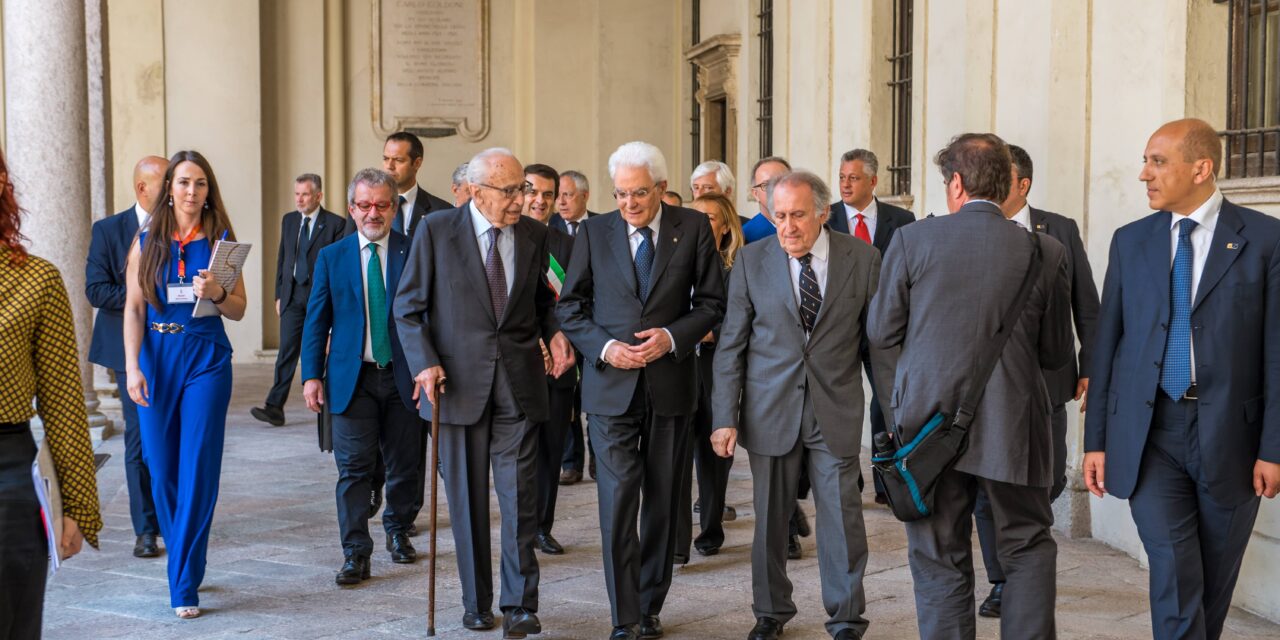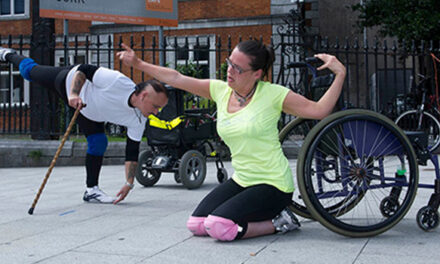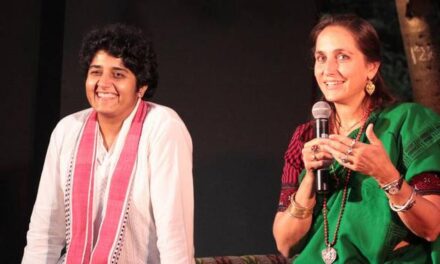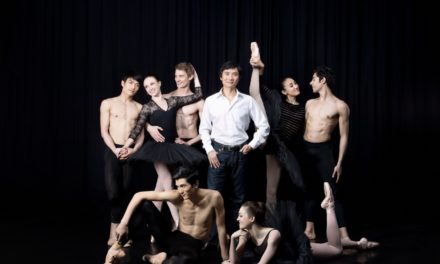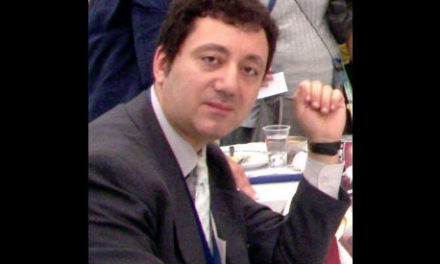Ghislieri College in Pavia is one of the oldest and most prestigious university colleges in Italy, founded in 1567 by Pope Pius V. Since 2007 – the year of the 300th anniversary of Carlo Goldoni’s birth (1707–93) – it celebrates this famous pupil, who was a student in Pavia from 1723 to 1725. The 12th edition of “Goldoni Day” offers a precious occasion to consider the relevance of the theatre of Goldoni for one of the most important Italian intellectuals, considered the founder of modern literary criticism: Francesco De Sanctis (1817–83).
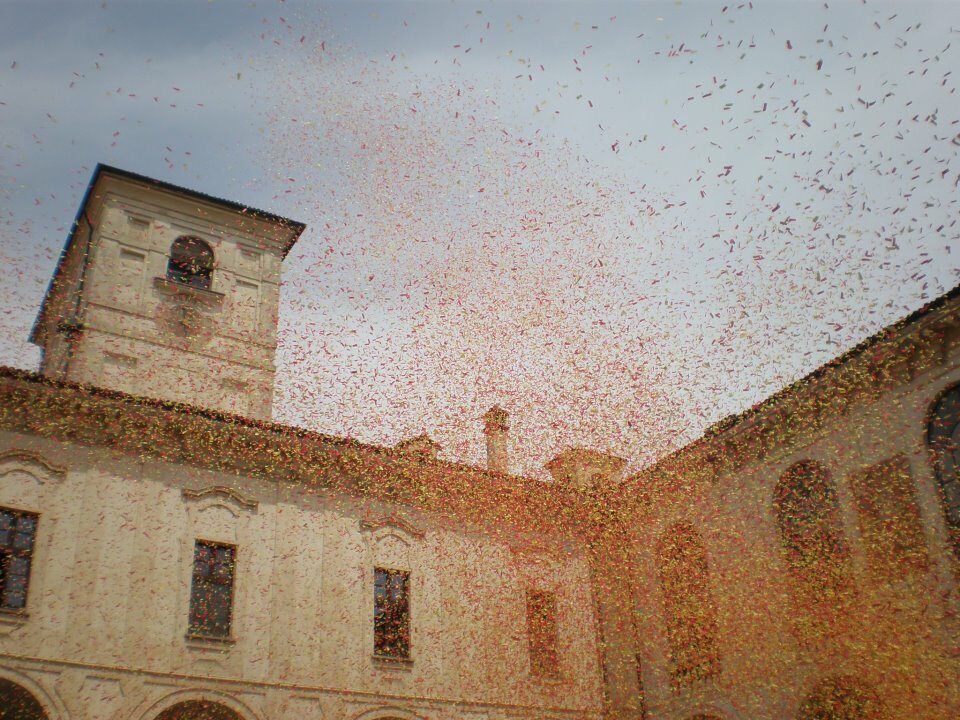
The four-sided portico of Ghislieri College. Image courtesy of Ghislieri College Archive, Pavia.
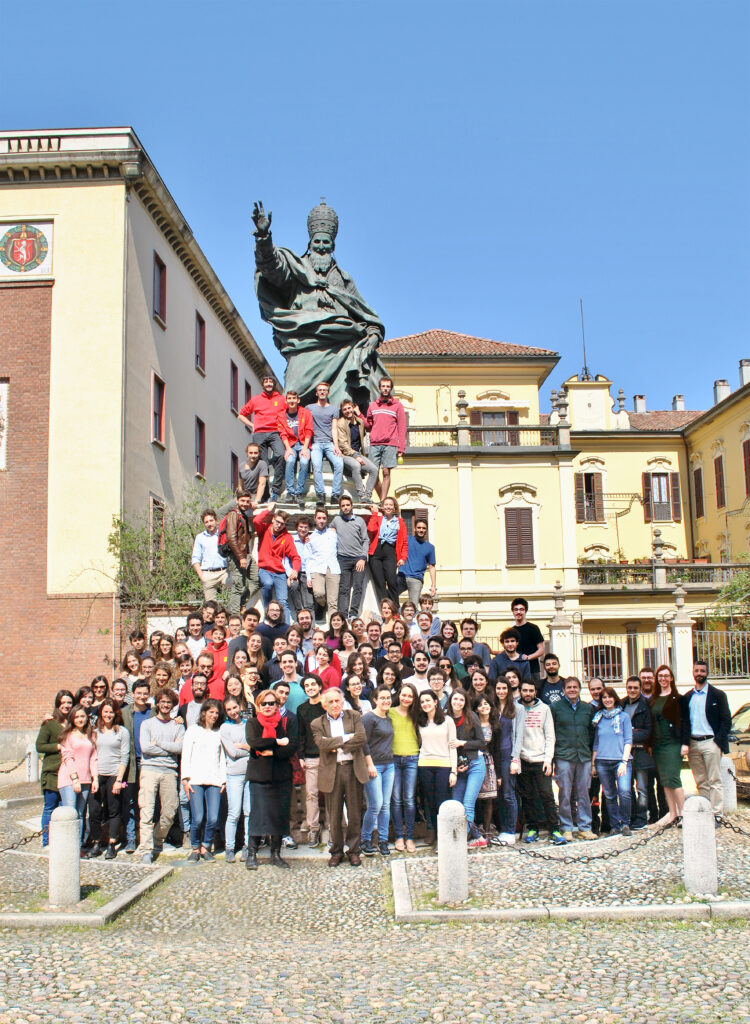
The students of Ghislieri College, near the statue of Pope Pius V. Image courtesy of Ghislieri College Archive, Pavia.
In his Storia della Letteratura Italiana (History of Italian Literature), De Sanctis explained Goldoni’s artistic vocation and his aesthetic ideals with a special attention to his desire to reform the theatre of the eighteenth century, linked to the education of the audience. In his critical opinion, the great Venetian playwright was a model for new generations because he had the courage to create a new style in his comedies: this novelty involved also the practice of the actors, and – especially at the beginning – had difficulty succeeding. But Goldoni was a genius and a real artist: his theatre could be considered the avant-garde in his period, and he was conscious of the experimental level of his works. With his perseverance and skill, he did not fail in his goal: he was able to elaborate the right strategy to gradually impose his theatrical reform.
Goldoni had great powers of observation, and he used this special gift to portray his characters in his comedies. There is a special trait in many of them, which helps in the difficult moments of life: in the words of De Sanctis, it is “cheerful strength” (“la forza allegra”). This is a spiritual resource of the protagonists, a manifestation of resilience which makes it possible to change the hard present in a positive way. For example, in The Shrewd Widow (La Vedova Scaltra), there is the vitality of Rosaura in the face of the death of her husband and her cleverness in finding a new spouse; in The Mistress of the Inn (La Locandiera), there is the cleverness of Mirandolina in finding a husband in order to satisfy her promise to her dying father; in The Servant of Two Masters (Il Servitore di Due Padroni), there is the funny reaction of Truffaldino, who is dying of hunger and who serves a banquet to both his masters, desperately trying to satisfy his own hunger at the same time.
In Goldoni’s adventurous life, a great revelation of his “cheerful strength” was in May 1725, when he was expelled from Ghislieri College and was obliged to leave Pavia in secret. This was the catastrophic consequence of his satirical poem Il Colosso (The Colossus), with its ridiculous allusions to the daughters of some local noble families. It was the irreverent – but innocent – game of a student in his third year, but this accident ended the disputation of his thesis in Pavia. After many years, in his Memoirs, Goldoni described his arrival – full of remorse and oppressed by a sense of guilt – in Venice and the reaction of his father. In that period, theatre became his best consolation, helping him to look to the future with a new confidence. Later, he graduated in Padua and worked many years as a lawyer, but without satisfaction. When he was 40, the “cheerful strength” provoked his reaction and his decision to elevate theatre as the only reason of his life: he abandoned the legal profession and began to work as a playwright for the theatres in Venice. Finally, when he was 55 years old, the “cheerful strength” helped him to decide to emigrate to Paris, where he died at almost 86.
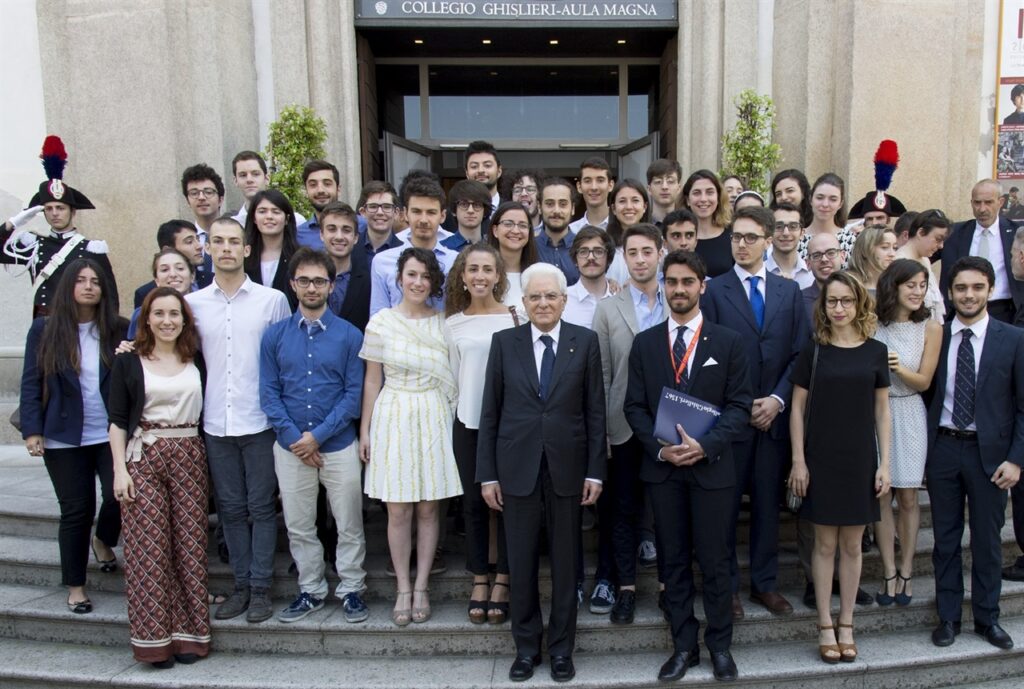
The President of the Italian Republic, Sergio Mattarella, during his visit to Ghislieri College (June 2017). Image courtesy of Ghislieri College Archive, Pavia.
This year, “Goldoni Day” is enriched by a lecture by Prof. Toni Iermano (the most authoritative scholar of De Sanctis in Europe) and a reading by the actor Gino Bartalena. “Cheerful strength” is the spiritual lesson of Goldoni, and, thanks to the critical evaluation of De Sanctis, we have a basic element for the best comprehension of his comedies and his autobiography.
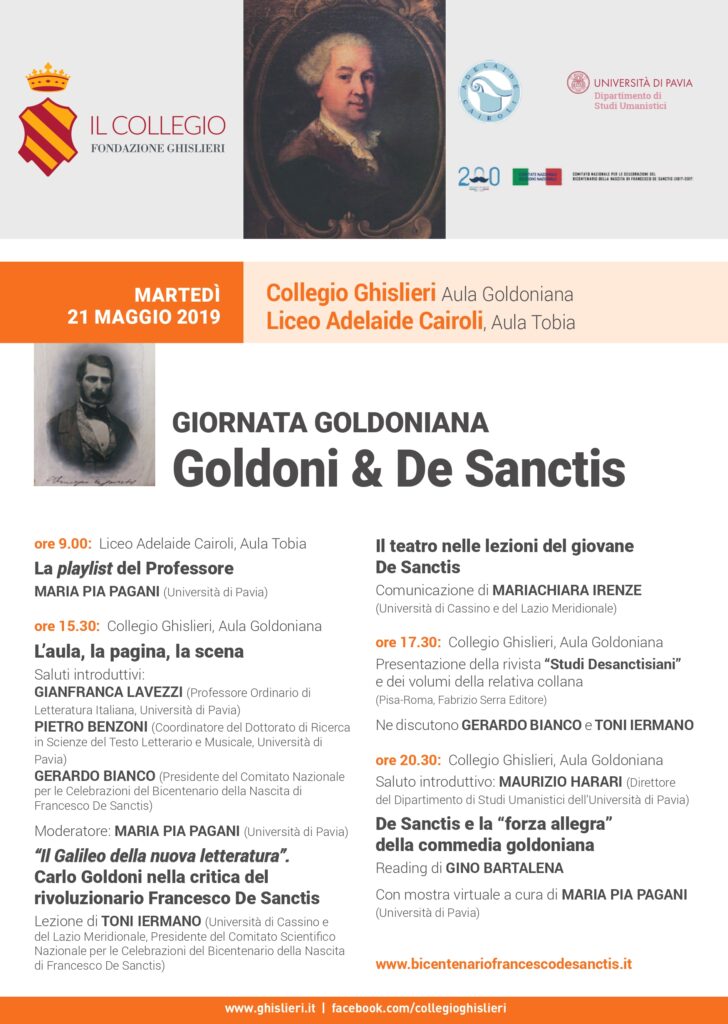
Goldoni Day 2019. Poster.
This post was written by the author in their personal capacity.The opinions expressed in this article are the author’s own and do not reflect the view of The Theatre Times, their staff or collaborators.
This post was written by Maria Pia Pagani.
The views expressed here belong to the author and do not necessarily reflect our views and opinions.

